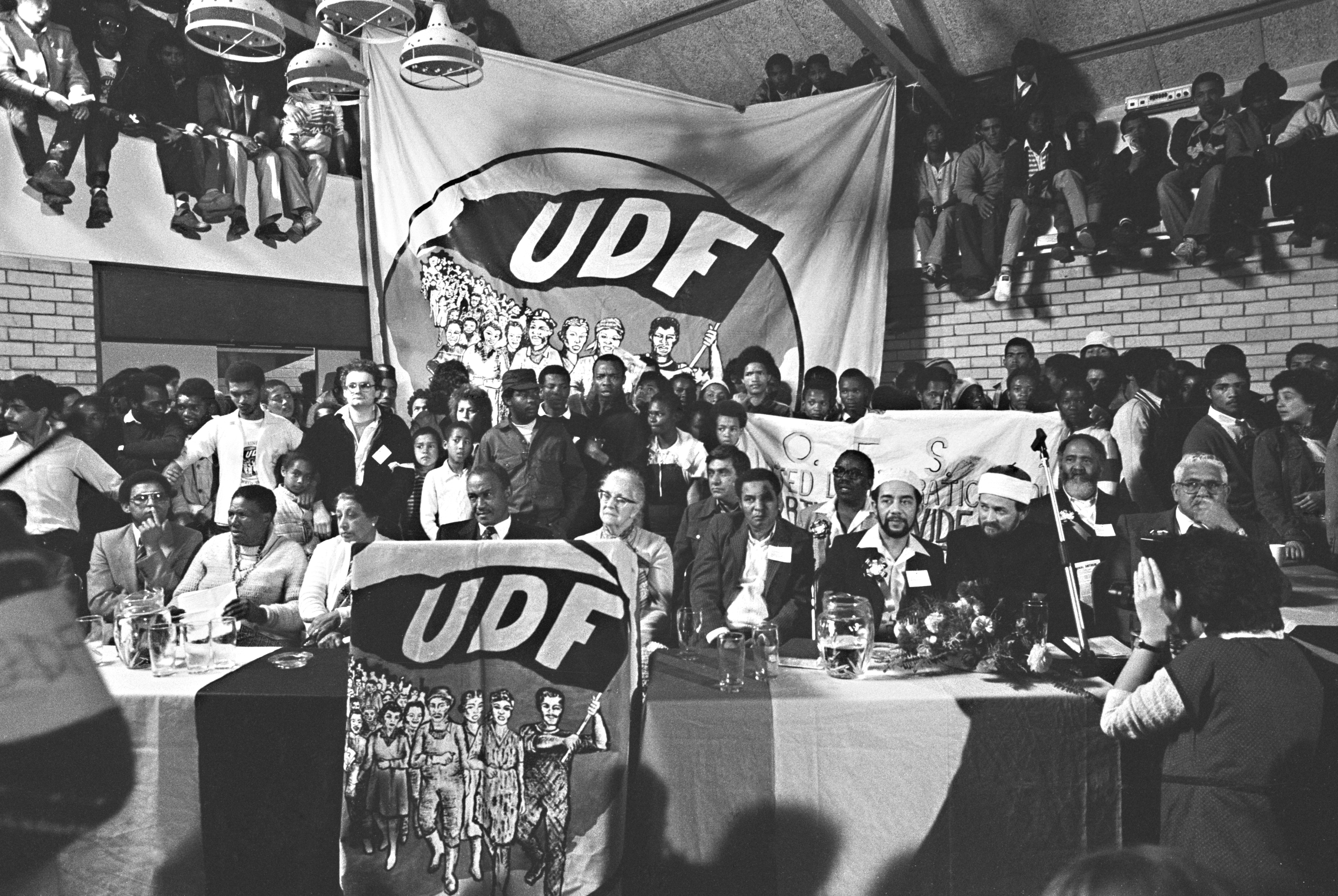The de-mobilisation of Action Kommandant The United Democratic Front, popular democracy and the ANC
Main Article Content
Abstract
When the ANC was unbanned it sought to demobilise grassroots democracy. In disbanding the United Democratic Front, the ANC turned its back on the insurgent non-racialism that had emerged in the 1980s, argues ROBERT VAN NIEKERK. It opted instead for a neo-liberal strategy of economic development and elitist democracy.
The Zondo Commission of Inquiry into Allegations of State Capture (2022) laid bare the evisceration of South African state capacity through unchecked plunder by apparatchiks (or cadres) in the ruling ANC and its collaborators in the private sector. This denouement can be traced to the early 1990s where the moral and political decay of the ANC became evident with the emblematic injunction
by senior leaders of government such as the then deputy-minister Phumzile Mlambo-Ngcuka that “Black businessmen should not be shy to say they wanted to become ‘filthy rich’” (News24 Business: 2005; Taylor, 2016: 35).
Downloads
Metrics
Article Details

This work is licensed under a Creative Commons Attribution-NoDerivatives 4.0 International License.

